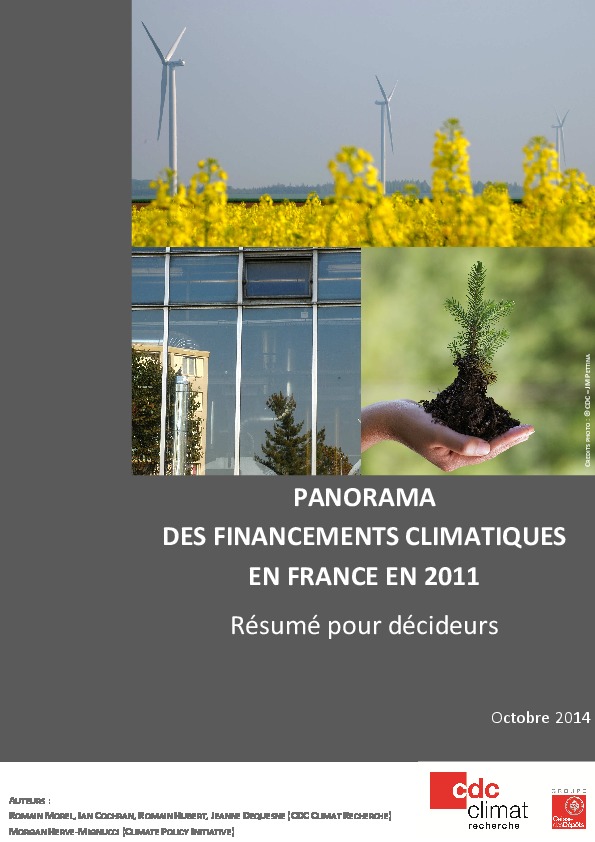Landscape of climate finance in France, 2014 Edition
Based on a methodology developed by the Climate Policy Initiative and recognized internationally, the Landscape of climate finance identifies financial flows dedicated to the climate change mitigation and adaptation in France in 2011. The study collects information about the role and weight of public and private actors, as well as the instruments and channels involved in the disbursment of the funds.
In 2011, investments for the reduction of GHG emissions are estimated at 22.2 billion euros in France. These investments are comprised of additional production capacity for renewable energy (41%), energy efficiency actions (37%) and low-carbon transport (22%). Private sources accounted for nearly 75% of all investment spending.
Back to the Landscape of climate finance research project page.

